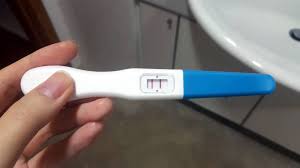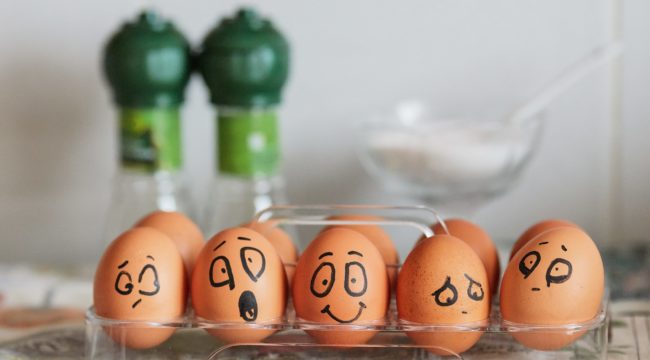You’re not pregnant the first week or two of the time allotted to your pregnancy. Yes, you read that correctly!
Conception typically occurs about two weeks after your period begins. To calculate your due date, your health care provider will count ahead 40 weeks from the start of your last period. All the above means your period is counted as part of your pregnancy — even though you weren’t pregnant at the time.
Calculating
Now, if you break up the healthy pregnancy into thirds, you’ll get a “first trimester” that is 13 weeks, or a little over three months.
It has been a tradition for health care providers and the rest of us to talk about pregnancy in three trimesters to help give pregnancy a beginning, middle, and end. Nowadays, most providers talk about your pregnancy in weeks, rather than months or trimesters.
However, the notion of the trimester is still essential in helping the mother-to-be and those around her to identify different stages in the pregnancy, to have an expectation of what is going to happen, and to count down the days.
What Happens During the 1st Trimester?
You may not be showing much on the outside, but the first trimester is a crucial time in your baby’s development. A lot is going on.
Your Body Changes
From the very start, your baby-to-be changes your body and the way you live. For your entire pregnancy, the baby depends on you for all the things it needs to grow and thrive. And your body makes the changes to make sure the baby can grow.
Once your egg is fertilized, it makes its way to the uterus and implants on the wall. As the fetus develops these first few months, your uterus builds the placenta. The placenta brings functions as a life-support system during pregnancy, delivering oxygen, nutrients, and hormones from mother to fetus.
The lining of a woman’s uterus also thickens, and its blood vessels enlarge to nourish the fetus.
Your Baby
During the first trimester and up to the sixth week, that new life growing inside the mother’s body is called an Embryo. After the sixth week, the Embryo changes to a Fetus and will stay that way until birth, at which time the Fetus passes through the birthing canal and then officially becomes a Baby.
What Do I Need to Do in the First Trimester

The stick turned blue or showed 2 lines. Congratulations! Now what?
Hey, hey, wait–don’t run out and buy a crib yet! You have a few months yet to decide on what you like. Here are some of the things you should do first.
Sharing
- Decide how you are going to tell the Dad he’s going to be a Dad
- Decide how and when you are going to discuss it with your boss.
- Decide how and when you are going to tell everybody else.
Medical
- Make an appointment with your doctor. If you don’t already have an OB/GYN you like, ask your family practitioner or your friends and relatives for a recommendation.
- Check with your doctor about any drugs or medication you are on. And, of course, stop any hormone-based birth control method you may be using.
- If your family has a history of genetic disorders, consider prenatal testing.
Diet
- Start taking a prenatal vitamin. Prenatal vitamins are very critical at this stage of development as they contain many vital nutrients, including folic acid. Studies show that folic acid helps reduce the incidence of neural tube defects.
- Drink lots of fluids, especially water (8 to 10 glasses a day).

Health
- Get plenty of sleep, and try to nap if you feel tired during the day.
- Start doing exercise, but moderately. If you were already exercising, great. Check with your doctor as to how much you should cut back. BUT DO NOT START a new exercise regimen when you’re pregnant until you talk to your doctor.
Dangers
- Begin to get rid of or stay away from unhealthy things in your life, such as cigarette smoking, x-rays, hair perms or dyes, chemicals, etc.
- If you do, stop drinking.
- If you do, stop smoking.
- Cut back on caffeine.
Finances
- Start budgeting for your new life with your baby.
Information
- Buy or borrow a book or two about pregnancy or try to find out expert knowledge on the Internet. Find out what you should expect during each trimester, as well as labor and delivery.
Your Body During the First Trimester
During the first three months of pregnancy or the first trimester, your body undergoes many changes. As your body adjusts to the growing baby, you may have nausea, fatigue, backaches, mood swings, and stress. These things are all normal.
Your physical body
Even though you aren’t showing yet, your body lets you know that you are pregnant. By the time you are six weeks along, you will likely feel like you are pregnant. In other words, your body will be doing something different. Right from the first few weeks, you may have a host of symptoms, including:
- unusual fatigue
- irritability
- bouts of nausea/morning sickness
- headaches
- dizziness
- enlarging and tender breasts
- indigestion
- bloating
- increased urination
- light cramping
But take heart–many of these symptoms will vanish by the beginning of your second trimester. And although you may not feel your best at the beginning of your pregnancy, none of your symptoms will make the baby uncomfortable.
Your emotions

Your emotions are probably changing quite a bit during this time as well. Even if you were trying for a baby, you might have a whirlwind of different feelings, sometimes at the same time. You are not crazy. You are pregnant! Not only is your life changed from here on out, hormone levels—which affect your moods—are changing in your body too.
Pregnancy may leave you feeling delighted, anxious, exhilarated, and exhausted — sometimes, all at once. Even if you’re thrilled about being pregnant, a new baby adds emotional stress to your life. It’s natural to worry about your baby’s health, being a parent, money needs, even redecorating.
If you are feeling -try…
- stunned – giving yourself some time
- frightened – getting information from your doctor, Web sites, books, non-dramatic friends
- delighted – enjoy it, decide how you will tell the world
- anxious – getting information
- disbelief – follow up your at-home test with a doctor’s appointment
- misgivings – assemble your “support team” (your partner, family, friends)who can provide understanding and encouragement
To cope with these emotions, remind yourself that what you’re feeling is normal. Take good care of yourself, and look to your partner and family for understanding and encouragement. If the mood changes become severe or intense, consult your health care provider for additional support.
The first trimester can be trying, both physically and emotionally. Give your body credit that it is now responsible for this incredible feat of making a baby. In just a few weeks, you will be surprised to find two old buddies: energy and enthusiasm!
What are the Very First Symptoms of Pregnancy?
That depends. Everyone experiences pregnancy differently, and every pregnancy is different, even with the same woman. However, some symptoms are pretty common early in pregnancy. You may only notice all or none or just a few of these symptoms in your first trimester.
Morning Sickness
Despite the name, nausea, or vomiting, your experience may occur at any time of day.
The Earliest You Might Have a Sign:
As early as one week after conception, typically 6 to 12 weeks
What You Can Do:
- Munch on something before you even get out of bed in the morning. A few crackers will work.
- Don’t let your stomach get empty. Eat several small meals a day.
- Drink plenty of liquids, especially if you’ve been vomiting. If your stomach is agitated, try crushed ice or ice pops.
- Suck on candy made especially for morning sickness.
- Try ginger tea.
Slight Spotting
Very early in your pregnancy, you may experience some light pink spotting—much lighter than a standard period.
The Earliest You Might Have a Sign:
8 – 10 days after conception
What You Can Do:
Womenshealth.gov does not recommend douching during pregnancy because of the chance of it provoking an infection. You can wear panty liners and know that this will stop soon.
Cramping
You can also feel cramping in early pregnancy. Your uterus does changes a bit in early pregnancy until it assumes its mid-position for the second trimester. This cramping is much like menstrual cramping and may even occur regularly, especially when you’ve been active.
The Earliest You Might Have a Sign:
8 – 10 days after conception
What You Can Do:
- Try applying low heat to the lower abdomen with a heating pad or hot water bottle.
- Sometimes acetaminophen (like Tylenol®) will help with cramps. Please do not take any drug during pregnancy without running it past your doctor or caregiver.
- Eat well and drink plenty of water.
- Get plenty of rest. Take a break and slow down physical activity when cramps begin.
Frequent urination
Even early on in the pregnancy, your growing uterus can start putting pressure on your bladder. Don’t forget, it’s not just the baby that’s growing, but your uterus is thickening, and the placenta and fluid are being created.
The Earliest You Might Have a Sign:
2 – 3 weeks after conception
What You Can Do:
Frequent urination is one of those symptoms to endure. Do not decrease your fluid intake while you are pregnant.
Breasts become more abundant or more tender
Your breasts may start to feel a little swollen and tender, much like the days before your period. This is just the start. Breasts will grow during the entire pregnancy.
The Earliest You Might Have a Sign:
Three weeks after conception
What You Can Do:
- Use a supportive bra when you need to wear a bra. If you can go more casual, try halters and shirts with a built-in shelf for light support that is not binding.
- If you need to get a bra with increased cup size, do so, but don’t invest in a maternity bra until your third trimester. Your breasts will continue to grow more massive right up to you start breastfeeding.
Areolas get darker than a common
That dark ring around your nipple may start to get darker and broader. It is thought that the darker color of the areola helps the newborn to find the nipple for breastfeeding.
The Earliest You Might Have a Sign:
2 – 4 weeks after conception
Fatigue
A widespread symptom, you might start to feel tired, even exhausted, often during the first trimester. This is because your body is going through significant metabolic changes, and it needs time to adjust to the new process of growing a baby. For most women, the fatigue starts to go away by the 12th week of pregnancy.
The Earliest You Might Have a Sign:
8 – 10 weeks after conception
What You Can Do:
- Get the rest you need. Take naps during the day or after work. Go to bed when you are tired.
- Cut down on commitments (volunteering, social events, etc.) for a while, especially if they’re wearing you out.
- Get help. Ask your partner, children, other family members, or friends to help out as much as possible.
- Moderate exercise, such as walking for up to 30 minutes a day, can help you feel more alert and energetic.
- Make sure you are getting a healthy diet. Especially check with your doctor that you are getting enough iron. Foods rich in both iron and protein include red meat, eggs, poultry, seafood, whole-grain bread and pasta, and iron-fortified cereals.
- Avoid caffeine, which may not help a lot and, anyway, may be harmful to your baby high doses.
- Do not take any medication unless approved by your doctor.
Constipation
Your bowel habits may change in early pregnancy. The extra hormones produced during pregnancy cause the intestines to relax and become less efficient.
The Earliest You Might Have a Sign:
8 – 10 weeks after conception
What You Can Do:
- Eat high-fiber fruits (prunes), vegetables, and whole grains like whole wheat and oatmeal.
- Eat on a regular schedule and eat until you are satisfied, not overfull.
- Drink plenty of liquids — at least eight glasses a day.
- Get some exercise every day, and a 30-minute walk will do.
- With your doctor’s approval, try fiber supplements or a mild laxative such as milk of magnesia, which is safe.
Indigestion and Heartburn
Many pregnant women experience burning in the middle of the chest, burping, or the taste of acid in the throat at some point during pregnancy. Heartburn and indigestion are extremely common. The pregnancy hormone progesterone makes your stomach work slower but also relaxes the muscle at the top of the stomach, the one that stops food from coming up. A full belly and a loose valve is a formula for acid reflux and heartburn.
The Earliest You Might Have a Sign:
8 – 10 weeks after conception
What You Can Do:
- Eat several small meals instead of two or three large ones. No matter how small the meal, eat slowly.
- Drink plenty of fluids, especially water.
- Don’t eat common heartburn triggers: chocolate, fried foods, chocolate, peppermint, garlic, and onion.
- Avoid coffee, even decaf.
- Don’t go to sleep on a full stomach, have your last meal 2 or 3 hours before going to bed.
- Raise the head of your bed four to six inches if you get heartburn when lying down.
- Talk to your caregiver about using antacids or other medications that relieve heartburn. These products can be used safely in pregnancy, but your caregiver needs to approve it.
Discharge
The amount of vaginal discharge increases early in pregnancy. There’s just a lot more of it now, partly because of increased estrogen production and higher blood flow to the vaginal area. (Vaginal discharge also increases as you start approaching the time of labor.)
The Earliest You Might Have a Sign:
8 – 10 weeks after conception
What You Can Do:
- Douching will not help the standard increase in vaginal discharge and could cause an infection in your uterus that could provoke the premature delivery of your baby. Never douche during pregnancy. If you have symptoms of itching, odor, burning, or other vaginal discomforts, it may be an infection and should be evaluated and treated by your doctor.
Frequently Asked Question (FAQ)
Which week is the most important in pregnancy?
The first 13 weeks are really important for your body and your fetus (baby).



